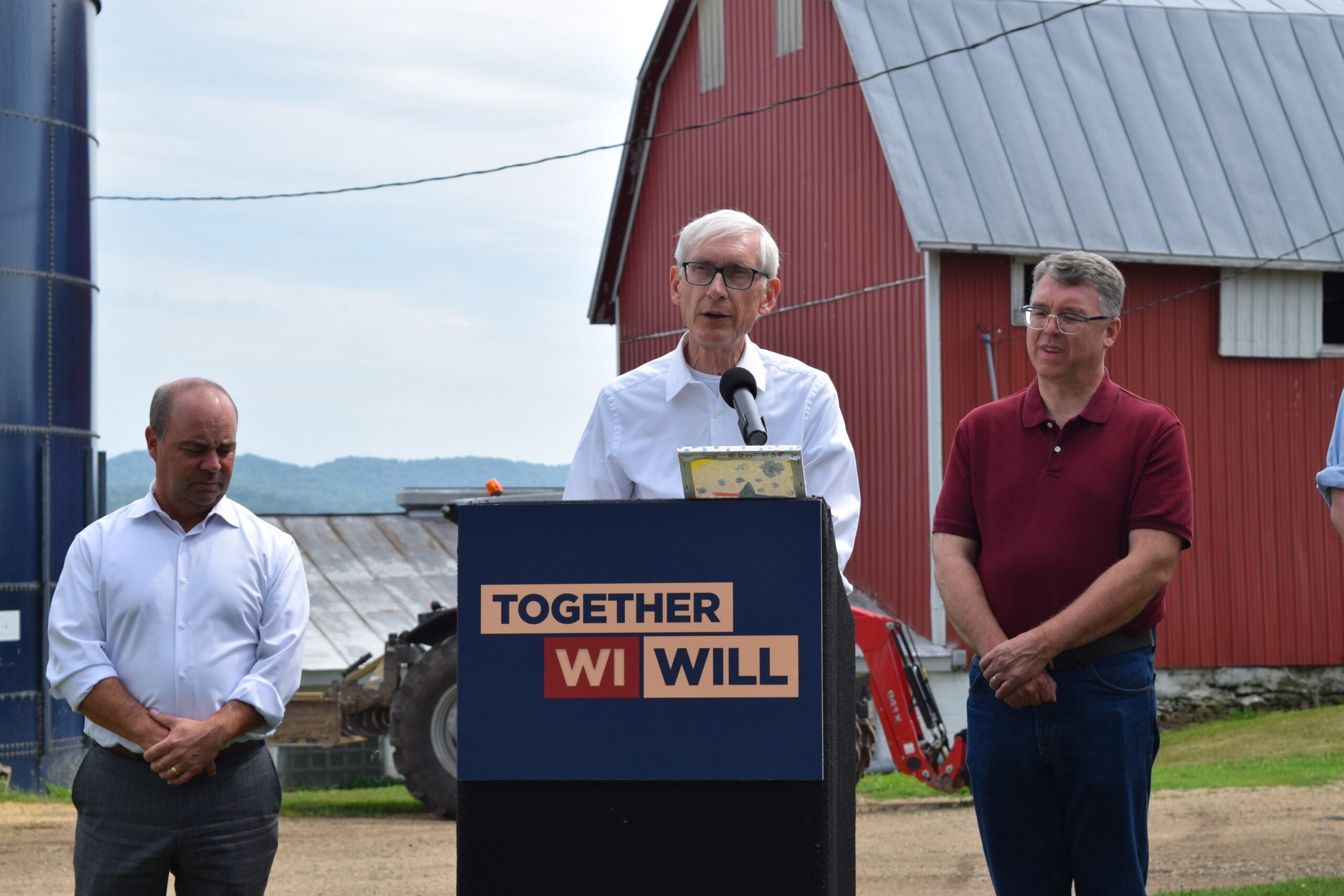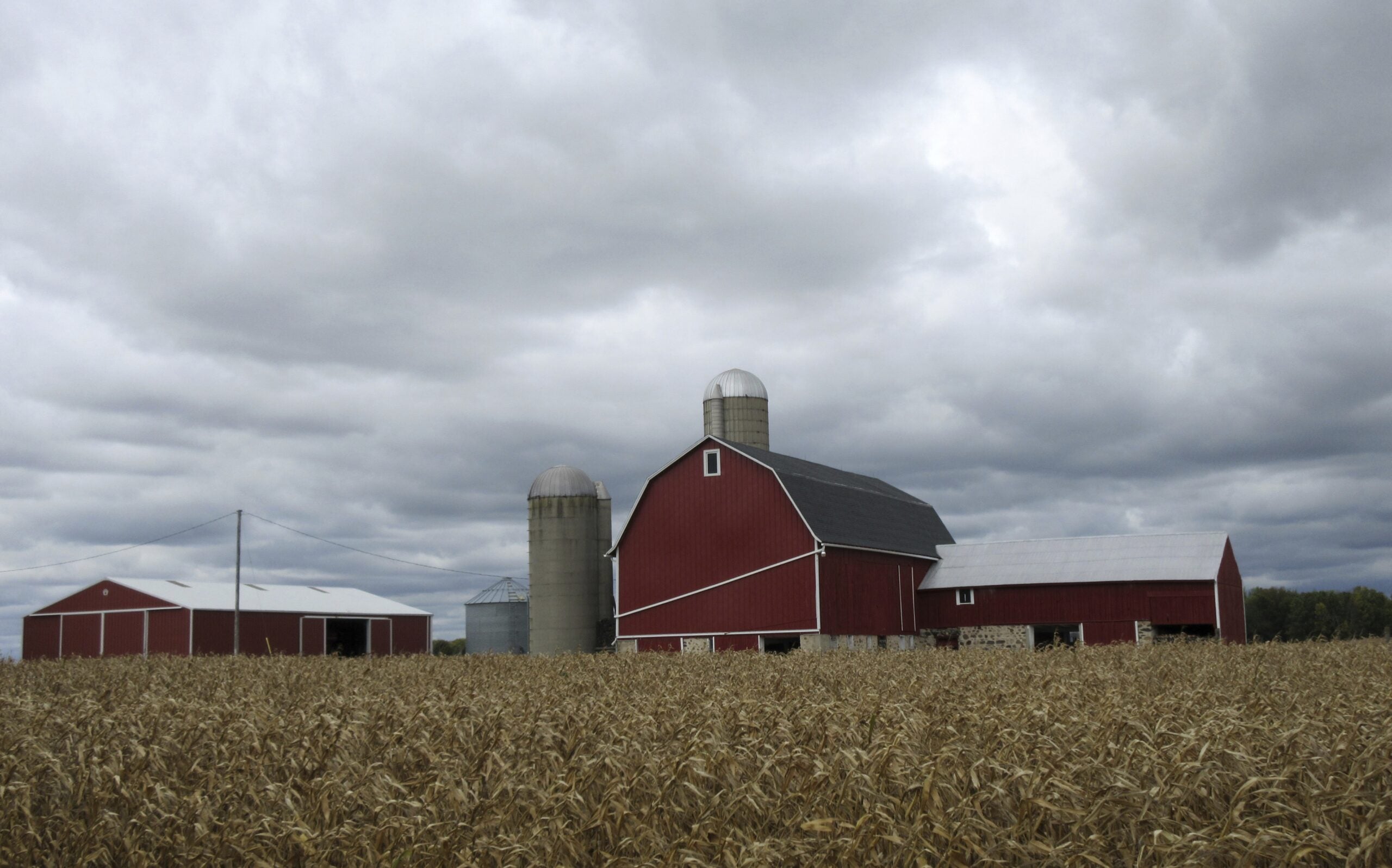Evers’ administration leaders say the newly-signed biennial state budget will continue momentum behind investments in the state’s agriculture industry.
Gov. Tony Evers signed the Republican-drafted state budget into law on Wednesday. The spending plan creates new funding for K-12 schools, local governments, rural roads and workforce housing.
During a visit to a La Crosse County farm on Wednesday to promote the budget signing, Evers said the new funding will benefit all sizes of communities, from cities to rural townships.
Stay informed on the latest news
Sign up for WPR’s email newsletter.
When asked about producers dumping milk in Milwaukee because of a market oversupply, the governor said the processing challenges further highlight the need for the budget’s investments in the state’s workforce.
“Regardless of the industry, but I would say for the agriculture industry in particular, making sure that there’s affordable housing, making sure that child care is affordable and accessible, so that people that want to go to work in a dairy processing plant can do that,” Evers told reporters. “We just can’t assume that because we have the product and we have a processor that all that product is going to be processed.”
The newly-signed budget also continues funding for several programs created for farmers and the ag industry through the state Department of Agriculture, Trade and Consumer Protection.
The budget expands the state’s existing Dairy Processor Grant program by $300,000 in each of the next two years and adds $1.6 million for the state’s Meat Processor Grants, a program that was created during the COVID-19 pandemic to increase meat processing capacity in the state.
The plan also allocates $1 million in each year of the budget for the Wisconsin Initiative for Agricultural Exports, a program that will aim to boost dairy, meat and crop product exports by 25 percent by 2026.
DATCP Secretary Randy Romanski said his agency has already seen momentum in ag exports after receiving bipartisan support of the initiative in the last budget process.
“Through the first two years of the program, we have had two straight years of record ag exports in the state of Wisconsin,” he said. “A lot of things go into that impact, but I think one part is having the flexibility and the funding for our staff to help businesses.”
The budget also provides $100,000 in each of the next budget to continue DATCP’s Farmer Wellness Program, which offers a 24-hour phone line for farmers experiencing a mental health crisis and provides producers with vouchers for free in-person counseling sessions at a local provider.
Romanski said the wellness program has been growing in popularity in recent years.
“The numbers for that continue to be at a very high level, which means a couple of things,” Romanski said. “No. 1, stress levels remain high in agriculture in Wisconsin. And No. 2, people are becoming more aware of the fact that the program exists.”
He said equally important is that more farmers are willing to make the phone call, indicating the stigma around seeking mental health services continues to decline in rural communities.
Wisconsin Public Radio, © Copyright 2025, Board of Regents of the University of Wisconsin System and Wisconsin Educational Communications Board.






